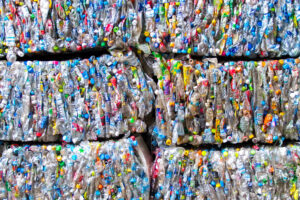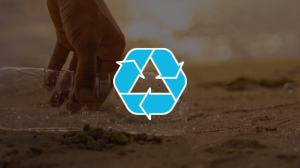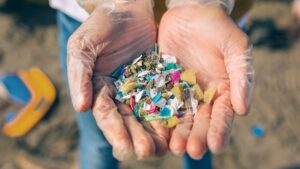Study: Naturally occurring lake bacteria can help remove plastic pollution
Carbon from plastic waste is easier for lake bacteria to digest than carbon from natural sources.
Plastic pollution in lakes can cause bacteria to grow more rapidly, as nutrients become more accessible from these chemicals. While this may point toward a remediation technology, other factors of plastic pollution, such as the toxicity of chemical leachate, should also be considered.
Story preview:
A study of 29 European lakes has found that some naturally occurring lake bacteria grow faster and more efficiently on the remains of plastic bags than on natural matter like leaves and twigs.
According to researchers at the University of Cambridge’s Department of Plant Sciences, the bacteria use the plastic as food first, because it’s easy to break down.
The scientists say that enriching waters with particular species of bacteria could be a natural way to remove plastic pollution from the environment.
The effect is pronounced, according to the researchers. The rate of bacterial growth more than doubled when plastic pollution raised the overall carbon level in lake water by just 4%.
The results suggest that the plastic pollution in lakes is ‘priming’ the bacteria for rapid growth – the bacteria are not only breaking down the plastic but are then more able to break down other natural carbon compounds in the lake.
Lake bacteria were found to favour plastic-derived carbon compounds over natural ones. The researchers think this is because the carbon compounds from plastics are easier for the bacteria to break down and use as food.
The scientists caution that this does not condone ongoing plastic pollution. Some of the compounds within plastics can have toxic effects on the environment, particularly at high concentrations.
Preview text: Bernie Commins, Agriland, August 15, 2022



